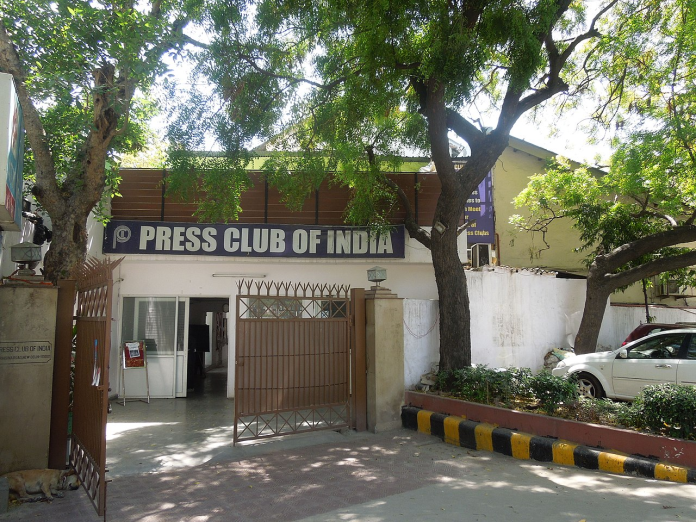
Journalist bodies are meeting at an open house on 8 August, Friday, at the Press Club of India for discussions around their stance against certain provisions in the Digital Personal Data Protection (DPDP) Act, 2023, which they fear will prevent them from their professional work in a free, fair, and smooth manner.
The open house organized by The Press Club of India (PCI), the Indian Women’s Press Corps, and Digipub will solicit inputs for the framing of FAQs that the ministry of electronics & information technology (MEITY) has asked for, following a joint meeting on 28 July 2025 with representatives of the three press bodies and the Editors Guild of India.
During the meeting with ministry officials, media representatives raised concerns over the impact of several restrictive and sweeping provisions of the DPDP Act on freedom of the press and freedom of expression as enshrined in Article 19(1)(A) of the Constitution. The ministry officials then asked the representatives to submit FAQs to address the concerns.
The discussion between the journalist representatives and MEITY officials took place after the PCI submitted a joint memorandum signed by 22 press bodies and over 1,000 journalists to Ashwini Vaishnaw, minister, MEITY, through the director-general of the Press Information Bureau. The signed joint memorandum can be accessed on the PCI website.
The memorandum flagged problematic provisions of the DPDP Act in detail and posed a series of questions. It drew up sample scenarios in which various definitions and provisions of the Act in their existing form have the potential to curtail journalism. The signatories demanded exemptions for journalists and media organizations.
On 21 April too, journalists from across platforms gathered at the Press Club lawns at an open meeting to express their concern over the Act. Journalists feel that the Act, while not specifically targeting the media, can significantly impact media organizations through its general penalty provisions, as it regulates the processing of digital personal data.
“Our biggest concern about the act is the penalty clause of a whopping Rs 250 crore, which can go up to Rs 500 crore, against an individual or entity if the DPDP Board that the government would appoint deems fit,” Gautam Lahiri, president of the Press Club of India, had earlier said in a statement.
The Act was enacted in August 2023 for the processing of digital personal data in a manner that recognizes both the right of individuals to protect their personal data and the need to process such personal data for lawful purposes.
While the DPDP Act lays the broad foundation for data protection, the DPDP Rules, released on 3 January 2025, clarify the details, address the finer points, and operationalize it.

















